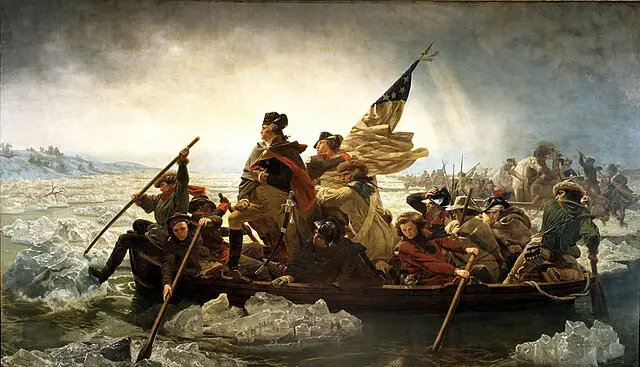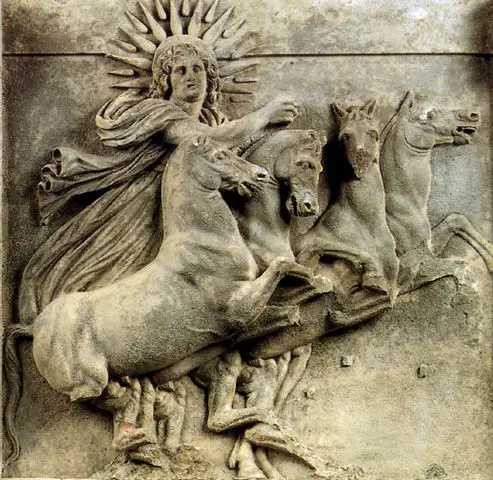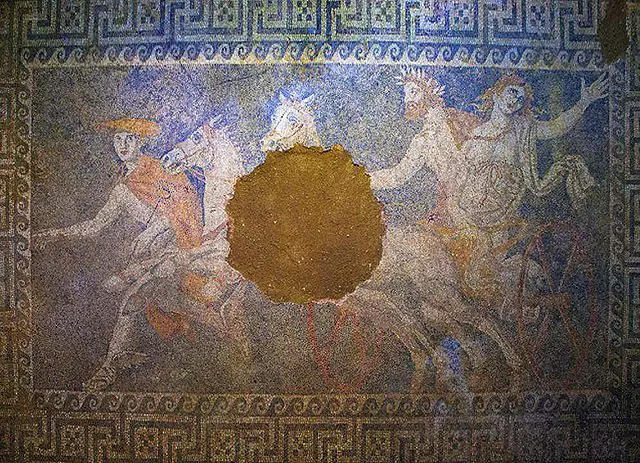| Event Date | 68-69 AD |
| Location of World | Roman Empire, 1st century AD |
| Further Reading | The 5 Roman Emperors Of The Julio-Claudian Dynasty |
With the death of Nero in 68 AD the Julio Claudian Dynasty ended and the resulting power vacuum created a mad grab for power. Over the year of 68-69 AD Rome would see 4 men attempt to seize power as the emperor of Rome. The last emperor standing was Vespasian and he would start one of the most powerful dynasties in the Roman Empire. Here is why the Year of the Four Emperors is significant to Roman History.
The Year of the Four Emperors is significant to Roman History for 3 reasons. First, the Year of the Four Emperors demonstrated the growing power of the Imperial provinces to influence politics in Rome. Second, the Year of the Four Emperors is significant because it demonstrated that a low ranking ‘noble’ could become a Roman emperor. Third, the Year of the Four Emperors drastically changed how the Roman military was built and operated.
Here at The History Ace I strive to publish the best history articles on the internet. If at the end you enjoyed this article then consider subscribing to the free newsletter and sharing around the internet.
Without further ado, here are the 3 reasons why the Year of the Four Emperors is significant to Roman history.
The Year of the Four Emperors Demonstrates a Growing Power of the Imperial Provinces to Influence Politics
One of the main reasons the Year of the Four Emperors is significant to Roman history was because it demonstrated a shift in power between the city of Rome and her provinces.
During the Julio-Claudian dynasty nearly all power in Rome was centralized under the imperial household in Rome. This was a byproduct when Augustus and Tiberius reigned as the first two emperors. In an effort to control the politics of Rome the first two emperors would begin a process of controlling all political power.
During Nero’s reign power began to slowly leave the imperial household. Provincial governors and generals were given back power to administer affairs. This resulted in fierce political alliances that centered around provincial Romanized families. It was becoming apparent to everyone but the imperial household that things were about to collapse.
Examples of this can be seen in the growing power of Gaius Julius Vindex who from 65-67 AD began to amass power in modern France to rebel against Nero. In an epitaph of Verginius Rufus Plutarch mentions a proto-form of Gallic nationalism which demonstrates that Vindex was defeated by Rufus in 68 AD for the ‘fatherland.’ This early form of group identity is a direct result of power being pulled away from Nero and the city of Rome.
This provincial power was further demonstrated when Roman-born Vitellius lost control of his imperial legions who favored the Italian-born Vespasian. Now the Roman army was starting to follow non-Romans instead of Roman-born citizens. This was a recipe for disaster. Vespasian was quickly becoming a favorite among the Roman soldiers and elite officers for his leadership style.
Simply put, what we see is that the Year of the Four Emperors demonstrates a decline of power in the city of Rome and a growth of imperial power in the Roman provinces. Rome was becoming more of an empire and less of a city which controlled provinces. Now just about anybody could rise through the ranks of the Roman army to hold as much power as the Roman Emperor.
The Year of the Four Emperors Is Significant Because It Demonstrated That a Low Ranking ‘Noble’ Could Become Emperor
Another reason why the Year of the Four Emperors is significant to Roman history is because it demonstrated a low-ranking equestrian (‘noble’) could rise through the ranks to become emperor. This is key because this upwards mobility allows subsequent Romans to rise to power across the Empire.
When the Year of the Four Emperors ended the last man standing was Vespasian. This made Vespasian the 9th emperor of the Roman Empire and the founder of the Flavian dynasty. Vespasian was well-liked by the Roman army and a select portion of the Roman Senate. Unlike Nero or the other General Emperors Vespasian was a capable leader and an accomplished commander.
However, Vespasian was different in a couple of ways. What made Vespasian so unique was that he was born into a low-ranking Italian family that had never held any major honors. His father was a tax collector from the Italian village of Falacrinae. This made Vespasian a nobody in Roman society. Having a member of a non-senatorial family rise up through the ranks of the Roman Empire to become a major leader was virtually unheard of. This had not happened since the days of the Republic and Cicero.
On top of coming from a commoner family what made Vespasian stand out was his military career. He was the legate of the invading army of Britain in 44 AD under Claudius and subjugated Judaea in 66 AD. Written accounts of Vespasian describe him as a man who didn’t speak much but always commanded a presence due to his capacity to lead others.
Vespasian had a habit of leading from the front when commanding his legions. This made him incredibly famous across the Roman Empire. As a result of this many of the Roman eastern provinces would declare him emperor in 68/69 AD. Not since Julius Caesar was a Roman general seen as leading from the front. This made many people believe in Vespasian as a restorer of the powers that the people of Rome had during the Republican period. Vespasian did not do this however, but Rome did benefit from his leadership style.
As such, the Year of the Four Emperors is significant to Roman history because it demonstrates that a low-ranking equestrian from an Italian village could rise rapidly through the ranks of Roman society to become the Roman emperor. Further, the fact that Vespasian lead a stable career as the Emperor of Rome demonstrates that Vespasian’s form of leadership was conservative in nature and helped to restore the power dynamic between the people and imperial family that the Julio Claudian dynasty lacked.
The Year of the Four Emperors Drastically Changed How the Roman Military Was Built and Operated
One of the main reasons that the Year of the Four Emperors is significant to Roman history is because it drastically changed how the Roman military was built and operated.
In order for Vespasian to come to power he had to have the power of not only the legions but also the auxiliary troops which came from the provinces around the Roman Empire. Auxiliary legions provided a huge benefit to Vespasian’s rise to power. One German tribe in particular, the Batavi, played a vital role in the conflict having fought for 2 of the 4 emperors.
While Vespasian utilized this provincial power and auxiliary legions to come to power he was afraid of others using it against him. In particular, the Batavi would prove to be difficult to control as they expected a higher level of payment from Vespasian since they helped him become emperor. Tired of conscription and constant fighting the Batavi rebelled against their Roman occupiers. This rebellion of the Batavi forever changed how the Roman military was built and operated.
Before this rebellion, each auxiliary legion was stationed near its homeland. Normally this was perfect as the soldiers in these legions were incentivized to protect the land around their garrison because this was where their families were located. However, if the people rebelled then there was a problem. Now not only was there a rebellion but also now these rebels would be aided by the Roman auxiliary legion stationed nearby.
As such after the Year of the Four Emperors Vespasian would force all auxiliary legions to be moved around the Roman Empire far away from their homeland. Now if a location rebelled against the Emperor the auxiliary legion was less likely to help the rebels. Further, this action of spreading out auxiliary legions helped to solidify Vespasian’s power over the provinces. This also had the added benefit of distributing cultures across the Empire and helping to establish a quasi-unified Roman culture across the provinces.
As such one of the main reasons the Year of the Four Emperors is significant to Roman history is because it drastically changed how the Roman military was built and operated. Further, because auxiliary legions were cycled around the Empire there was a large spread of Roman culture over the next coming decades. If you were to visit the provinces during the time of Vespasian you would start to see a standard Roman culture beginning to form.
Conclusion
There you have it; an entire article going over the 3 reasons the Year of the Four Emperors is significant to Roman history.
The year of the four emperors is fascinating. While it was a Roman civil war it was far smaller than the two major ones under the Republic. Also, it was over after only one year and would give rise to a very powerful dynasty of Roman emperors. What came out of this was a stronger more unified Roman Empire with a leader who sought to control all of Roman politics and power.
Here at The History Ace I strive to publish the best history articles on the internet. If you enjoyed this article then consider subscribing to the free newsletter and sharing around the internet.
Further, you can check out some of the other articles below.
-
How The American Revolution Changed The World

Here is how the American Revolution changed the world. Many people are not aware of just how important this event actually was.
-
Why The Roman People Loved Chariot Racing

Why did the Roman people love chariot racing? Well it all comes down to these 3 reasons.
-
The Design and Color of Roman Chariots

What was the design and color of Roman Chariots? Were they faster or slower then normal chariots? Well here is everything!
Sincerely,
Nick